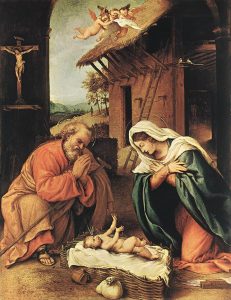It’s the end of a year and a new one beckons, another way in which we humans try to control things by measuring them. I am as guilty of this sort of thing as any, and probably more than most — how much time have I wasted over the last few years meticulously noting down everything I eat into a food journal, for literally no actual purpose?
I also track the books I read, movies and TV I watch, and my opinions about them, etc., for only slightly greater purpose — unlike the food journal, the book lists might be revisited once or twice in the future. These lists also let me do things like this, an end of year summary that will certainly be of interest to no one but me. (Of course, the same can be said of all the other articles on this little WordPress outpost.)
For many unmeasurable reasons, this has been a very good year. Below are some of the things that can be weighed, tracked and listed.
Books
I finished 64 books this year, down a bit from prior years, but then this is also the year I dove eagerly down the Kierkegaard rabbit hole. It started with a Catherine Project reading group of Fear & Trembling, continued with another CP group tackling Sickness Unto Death, and then a courageous few of us decided to stick together for The Concept of Anxiety. We’ve also read a few of Kierky’s discourses, including the three contained in The Lily of the Field and the Bird of the Air.
All of these books rank naturally as my best reads of the year, probably the best reads of my life; in January, our group begins Part 1 of Either/Or, and I begin thinking about how to actually turn Kierkegaard’s insights into personal action (or to use more precise words, inwardness and reflection).
I am still, of course, unfinished with Ellul’s Presence in the Modern World, which I am reading at perhaps the slowest pace of any book in my life. I’m glad to be doing so. God willing, I will continue notating my way through it here at the blog through 2024.
A few other books I read and loved this year:
Cleanness, by Garth Greenwell (2020) — Beautiful writing about a messy life (and is there any other kind?).
Brooklyn, by Colm Toibin (2009) — Quiet and wonderful. How did it ever become a movie?
Secret City, by James Kirchick (2022) — Long but fascinating.
Black Water, by Joyce Carol Oates (1992) — Should have read this a long time ago, but I am a latecomer to JCO’s work.
Jessica Fayer, by John L’Heureux (1976) — I read two L’Heureux novels in 2023 as part of my ongoing meander through his work; this one shows its age, but is a provocative examination of how death creates meaning for even the most desultory life. (The other one, The Handmaid of Desire, a weak attempt at academic satire, was mediocre.)
Being Human: Bodies, Minds, Persons, by Rowan Williams (2018) — Small but dense, worth rereading again. Also convinced me that I really need to read Iain McGilchrist, if only his books weren’t so damn massive.
Works of Mercy, by Sally Thomas (2022) — A first novel from a Catholic poet; funny and heartbreaking.
Howards End, by E. M. Forster (1910) — A good friend convinced me to read this as part of a group, and I didn’t regret it.
Philosopher of the Heart, by Clare Carlisle (2019) — A very good biography of Kierkegaard, though there are others I plan to read as well.
How to Inhabit Time, by James K. A. Smith (2022), and For the Time Being, by W. H. Auden (1944) — I didn’t plan on ending the year reading these particular two books, or imagine that they would wind up being such a one-two punch.
Movies
Not a lot of movies this year, though we wound up actually going to the movies more than I would have expected, and mostly just for fun: Barbie (which was more serious than most people seem to think), the new Indiana Jones and Mission: Impossible films (which were both more fun than most people seem to think), Theater Camp (which was hilarious). Also saw both Vertigo and Shadow of a Doubt on the big screen, which were terrific experiences.
Passages, which I wrote about here, was the best new film I saw all year; I still enjoy thinking about it.
Finally, we stumbled across Brian de Palma’s Phantom of the Paradise on the Criterion Channel, and what the actual fuck? Amazing weirdness; I can’t believe I’d never heard of it, let alone never seen it before.
Television
Not a lot of TV this year, and hopefully even less next year. But we finally got around to watching the third season of Atlanta, and it was such pure genius that we are putting off watching the fourth and final season until we feel a craving for something perfectly sublime.
Also, Somebody Somewhere on HBO (or whatever they call it now) is heart-wrenching and hilarious and beautifully acted; and the first season of Poker Face was just sheer fun; and All Creatures Great and Small starts every year on the perfect note. (New season next week!)
This Blog
This will be the 44th post since June 27. It feels weird to launch a blog in 2023, knowing that, unlike the glory days of 2005, it will be pretty much impossible for anyone to find it. But I’ve never really felt at home anywhere else, and whether anyone else ever reads any of these posts or not, I still feel a particular moment of apprehensive excitement when I press the “publish” button. Here’s hoping I am able to do so even more frequently in 2024.
